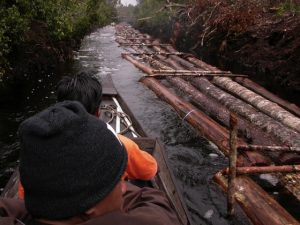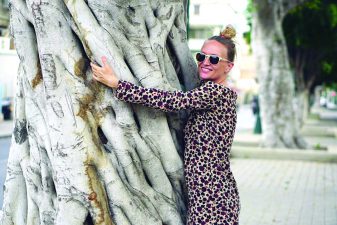 This Lebanese oak tree has survived for 1500 years, but many others were destroyed in recent forest fires.
This Lebanese oak tree has survived for 1500 years, but many others were destroyed in recent forest fires.
Sawdust from Lebanese cedars has been found in ancient Egyptian tombs, and the Bible recounts how the trees were brought to Jerusalem for the building of Solomon’s Temple. The cedar even appears on the Lebanese flag. But with climate change and the devastation caused by forest fires, Lebanon can’t take these great trees for granted.
Fortunately, the local NGO Jouzour Loubnan has stepped into the breach and begun planting three ancient species— cedars, almonds and carob. Carob and almond provide fruit, while planting native trees ensures that the ecosystem can sustain them.
The NGO is being assisted by the Lebanese Armed Forces and the United Nations Interim Force in Lebanon. Jouzour Loubnan co-founder Hiba Aboushosn said, “Our system has proved very successful and our tree survival rate is around 90 percent. . . . For every one of our trees that die we make sure we plant another one . . . but our main focus is not reforestation and we largely work on [reclaiming] land.”
The trees will be watched carefully during the first three years to protect them from livestock and disease. Most trees will be planted strategically in high, arid places where they will have the most effect on the environment and encourage biodiversity.
Jonzour Loubnan plans to plant 10,542 trees, one for every square mile of Lebanon.
Beirut Politicizes The City’s Dirty, Dangerous Green Inch
TreeShirt Brings Graphic Tees and Tree Plantings to Lebanon



it ‘s a pity that lebanese foresters cannot cooperate with their israeli collegues,who have huge experience(about 1000000 trees are planted each year in israel!) in a very similar environment and use smart and sustainable techniques(such as the contour line planting!)…